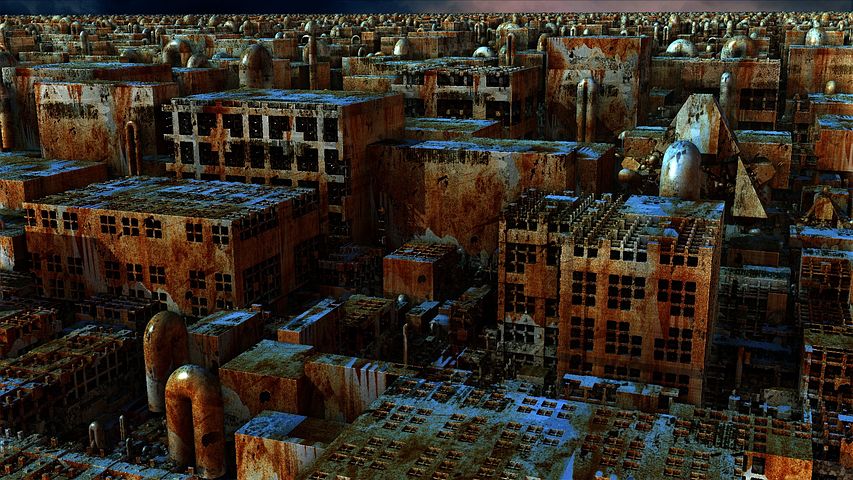Every month in 2018, we’re offering an essential reading list by genre.
This month, we’re covering one of the most challenging genres to read and write: dystopian. What happens to our world when everything goes wrong? Speculating about the future, which usually has turned for the worse, creates some of the most dysfunctional dystopian worlds that stick in our memory for years.
In no particular order, here are the top 25 dystopian novels as nominated online by readers.
Note: All the links below go to bookshop.org. Bookshop is an online bookstore with a mission to financially support local, independent bookstores. If you want to find a specific local bookstore to support, find them on the map and they’ll receive the full profit off your order. Otherwise, your order will contribute to an earnings pool that will be evenly distributed among independent bookstores (even those that don’t use Bookshop).
- 1. The Handmaid’s Tale by Margaret Atwood
- 2. 1984 by George Orwell
- 3. Brave New World by Aldous Huxley
- 4. Fahrenheit 451 by Ray Bradbury
- 5. The Hunger Games by Suzanne Collins
- 6. The Time Machine by H. G. Wells
- 7. The Giver by Lois Lowry
- 8. Animal Farm by George Orwell
- 9. Ender’s Game by Orson Scott Card
- 10. The Road by Cormac McCarthy
- 11. Ready Player One by Ernest Cline
- 12. Slaughterhouse-Five by Kurt Vonnegut
- 13. The Windup Girl by Paolo Bacigalupi
- 14. Divergent by Veronica Roth
- 15. Uglies by Scott Westerfeld
- 16. The Maze Runner by James Dashner
- 17. The Stand by Stephen King
- 18. The Lord of the Flies by William Golding
- 19. The Chrysalids by John Wyndham
- 20. Unwind by Neal Shusterman
- 21. Legend by Marie Lu
- 22. Do Androids Dream of Electric Sheep? by Philip K. Dick
- 23. Oryx and Crake by Margaret Atwood
- 24. A Clockwork Orange by Anthony Burgess
- 25. V for Vendetta by Alan Moore
- Editor’s picks
1. The Handmaid’s Tale by Margaret Atwood
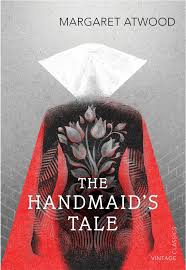
With the rise of religious fundamentalism, the dystopian world created by Atwood is increasingly believable. Christians have overthrown the government in a post-nuclear world. Infertility abounds, and fertile women are forced to become breeding machines. The Handmaid’s Tale is a frightening vision of gender discrimination taken to its extreme.
2. 1984 by George Orwell
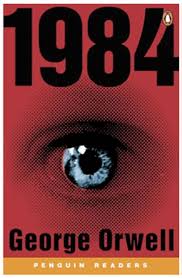
Orwell’s dystopian future in 1984 spawned a host of sayings that are part of our common vocabulary today, like "Big Brother." Constant surveillance and government-controlled media—doesn’t this ring eerily true in today’s nationalist societies? There’s a reason sales of 1984 have spiked in the past two years.
3. Brave New World by Aldous Huxley
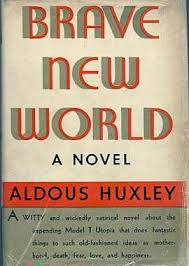
Huxley painted a chilling view of the future. Numbing drugs were the norm, reproduction was controlled and organized, people were brainwashed from birth, and there was no concept of family. Was this brave new world a hedonistic society or no place anyone can live for long?
4. Fahrenheit 451 by Ray Bradbury
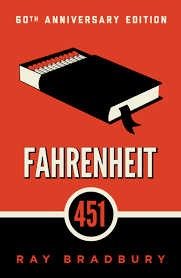
Bradbury wrote about every writer’s nightmare: a society that burned books and where intellectual thoughts are illegal. While we equate dissemination of ideas and a free press as essential to democracy, Bradbury tipped the world on its end and gave us the exact opposite. Considering Fahrenheit 451 was banned after it first released speaks volumes about its veracity.
5. The Hunger Games by Suzanne Collins
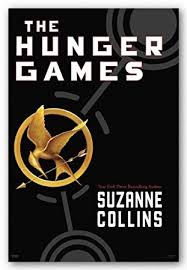
The future world of Panem is loosely constructed after ancient Rome where barbaric, brutal tournaments pit person against person in a fight to the death. The Hunger Games are put on for the elite’s entertainment, while those in the districts fight for food and rewards. The book is a cheeky little poke at reality television as well as a dystopian world.
6. The Time Machine by H. G. Wells
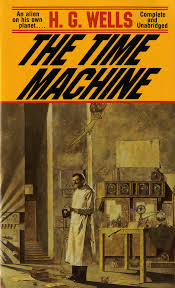
The Time Machine falls within a couple of categories as an essential read. Wells takes his main character to a future world of dark, dystopian places where he witnesses the end of society. Part Sci-Fi, part dystopian, The Time Machine popularized the notion of time travel, rendering the term "time machine" common in today’s vocabulary.
7. The Giver by Lois Lowry
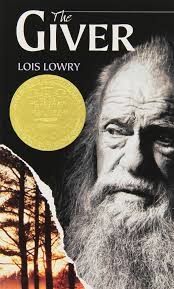
The main character, 12-year-old Jonas, thinks he lives in an ideal world. It’s not until he’s given his life assignment as the Receiver of Memory that he uncovers the dark secrets of his community. As his understanding deepens through meetings with the current Receiver who asks to be called the Giver, Jonas hatches a plan to save an infant set to be "released" soon.
8. Animal Farm by George Orwell
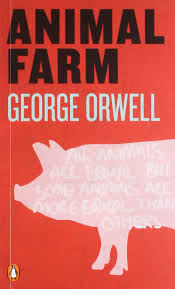
Orwell hits the list twice with another book that crosses several genres. Animal Farm depicts a future society of overworked, mistreated farm animals and their quest to create a utopia of justice, equality, and progress. Tones of totalitarianism seep out of this idealistic society as charismatic leaders become the cruelest of oppressors.
9. Ender’s Game by Orson Scott Card
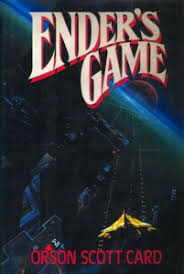
Set in Earth’s future, Ender Wiggin is selected to attend Battle School where gifted children are turned into commanders. Their aim is to become capable of defeating the buggers (aliens from distant worlds) in the next war. Mankind is imperiled by an insect-like alien species, and the children at Battle School train incessantly until tactical genius is revealed.
10. The Road by Cormac McCarthy
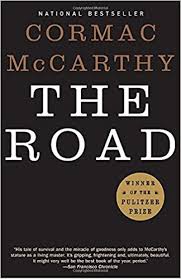
In post-apocalyptic United States, a father and son walk alone through a country burned beyond recognition. It is cold enough to crack stone, and gray snow falls across the country. Father and son are heading for the coast, hoping they’ll encounter someone or something good. But on the road, they encounter lawlessness and cruelty.
11. Ready Player One by Ernest Cline
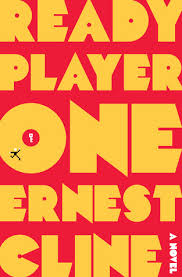
Wade Watts, a teenager in 2045, only feels alive when he’s immersed in the virtual utopia known as the OASIS. OASIS’s creator imbued the world with puzzles of pop culture from the 1980s. Those who crack and unlock the puzzles will win massive power and fortune. Wade stumbles on the first clue and suddenly players will kill for the ultimate prize.
12. Slaughterhouse-Five by Kurt Vonnegut
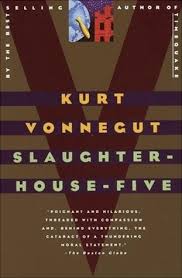
The time traveling, unreliable narrator, Billy Pilgrim, refuses to fight in WWII and believes he was held in an alien zoo on a planet named Tralfamadore. The aliens of this world can see in four dimensions, meaning they observe all points in the space-time continuum. Billy travels about in time from WWII to current day New York City and back to Dresden in 1945.
13. The Windup Girl by Paolo Bacigalupi
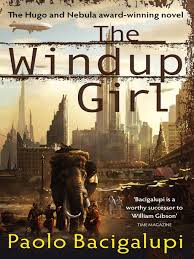
The Windup Girl is set in a world where catastrophes are commonplace, global warming has caused sea levels to rise to drastic levels, and biotechnology rules. Mega corporations control food production and manually wound springs are used as energy storage devices. Thailand is the exception. Bangkok is protected from flooding, houses genetically viable seeds and closes its borders to the mega corporations.
14. Divergent by Veronica Roth
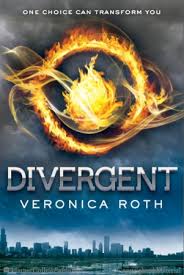
Chicago’s society is divided into five factions, each centered on a particular virtue: Candor (the honest), Abnegation (the selfless), Dauntless (the brave), Amity (the peaceful), and Erudite (the intelligent). Sixteen-year-old Beatrice must select the faction to which she devotes the rest of her life. Does she stay with her family or become who she really is?
15. Uglies by Scott Westerfeld
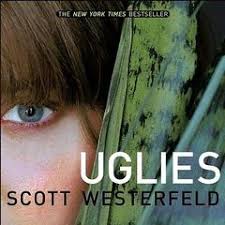
In a world where anyone not stunningly pretty is automatically an "ugly," Tally is ready for the operation that will turn her into a pretty. But her friend, Shay, doesn’t want to become a pretty and runs away. Tally is given a choice: find Shay and turn her in or never turn pretty at all.
16. The Maze Runner by James Dashner
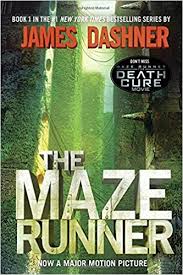
Thomas wakes up in a lift where he only remembers his name. He finds himself amongst other boys with no memories either in a place called the Glade. The Glade is surrounded by a limitless, ever-changing maze. It’s the only way out, but no one has ever made it through alive. Then one day, a girl arrives, the first girl ever, and her message is terrifying.
17. The Stand by Stephen King
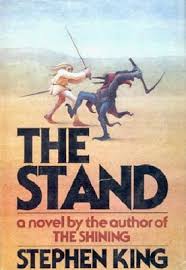 The world ends because of a computer error in a Defense Department laboratory and a million casual contacts that form the links in a chain letter of death. The bleak new world of the "day after" comprises a world with no institutions and hardly any people. A handful of panicky survivors choose sides. And for some, sides are chosen for them.
The world ends because of a computer error in a Defense Department laboratory and a million casual contacts that form the links in a chain letter of death. The bleak new world of the "day after" comprises a world with no institutions and hardly any people. A handful of panicky survivors choose sides. And for some, sides are chosen for them.
18. The Lord of the Flies by William Golding
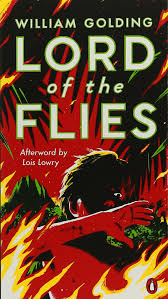
Taking place in an unspecified war, British boys are stranded on a deserted island and they try to govern themselves with disastrous consequences. Most the boys have never encountered one another, and despite being on an island of seeming paradise, eventually they descend into a primitive state of savagery.
19. The Chrysalids by John Wyndham
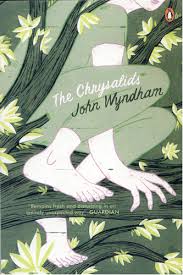
Set thousands of years in the future, The Chrysalids shows a dystopian world where difference is not tolerated. "Normality" is key to preserving the world. Inhabitants of Labrabor set out to kill or banish anyone different from them, including those who have telepathic powers.
20. Unwind by Neal Shusterman
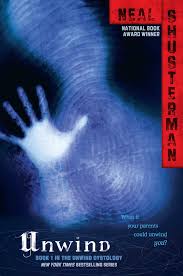
The focus of the Second Civil War was reproductive rights, with a scary resolution: Life is inviolable from the moment of conception until age 13. Between 13 and 18, though, parents can have their children’s organs donated to others, or "unwound," so life doesn’t technically end. Connor, Lisa, and Lev are running for their lives.
21. Legend by Marie Lu
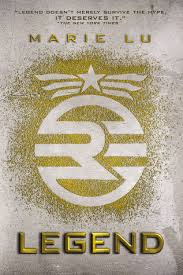
The western United States is now the Republic and is perpetually at war with its neighbors. The two main characters, June and Day, one day cross paths when Day is accused of killing June’s brother, Metias. Day races for survival while June vows to avenge Metias’s death. But the truth of their country’s secrets brings them together.
22. Do Androids Dream of Electric Sheep? by Philip K. Dick
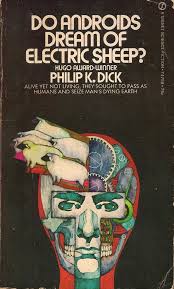
Set in post-apocalyptic San Francisco in January 2021 after a nuclear global war, Rick Deckard has one assignment. He must find and "retire" a band of rogue androids hiding out in the hordes of humans. The problem is all the androids look exactly like humans, and they’re doing everything in their power not to be found.
23. Oryx and Crake by Margaret Atwood
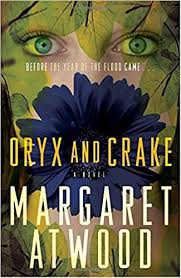
With another great dystopian novel on the list, Atwood creates a world with roots in what is actually happening in real life. America is a divided society with the rich getting richer and the oppressed poor kept away from the rich. Corporations dominate and control, aided by gene manipulation.
24. A Clockwork Orange by Anthony Burgess
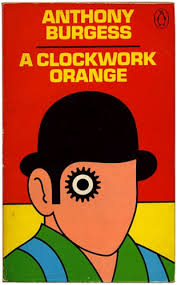
In a future where criminals take over after dark, Alex talks in brutal invented slang that renders his and his friends socially pathological. The future is full of violent gangs with extreme youthful violence, and the work of State authorities is to restore order. The State tries to reform Alex—to redeem him—but what is the cost?
25. V for Vendetta by Alan Moore
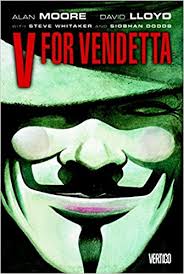
Set in post-apocalyptic England, an authoritarian police state clashes with the human spirit that rebels against it. The neo-fascist political party Norsefire has its opponents exterminated in concentration camps, while an anarchist revolutionary dressed in a Guy Fawkes mask tries to bring down the fascist state.
Editor’s picks
And finally, here are five of our favorite dystopian novels that deserve a spot somewhere on the list.
1. Never Let Me Go by Kazuo Ishiguro
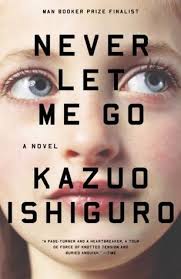
Set in dystopian Hailsham, a private school in the English countryside, children are sheltered and brought up to believe their well-being is crucial for society. Kathy, Ruth, and Tommy recall their years at Hailsham, but it’s not as idyllic as they were led to believe. There is a dark secret behind Hailsham’s nurturing facade.
2. The Running Man by Richard Bachman (aka Stephen King)
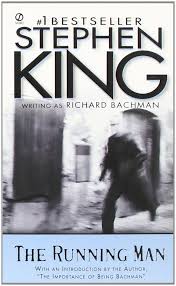
In dystopian America in 2025, the economy is in the tank, violence rules, and a totalitarian government is in control. Life for those "blacklisted" is unbearable. They are submitted to a game show where death looks like the only way out. Ben Richards participates in the game show, allowed to go anywhere in the world, and is chased by "Hunters" whose job it is to kill him.
3. Delirium by Lauren Oliver
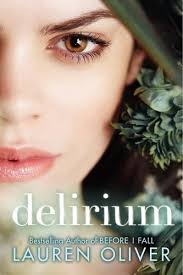
In a dystopian United States, love is a dangerous disease, for which there is a procedure called "the Cure." Lena Haloway is days away from her "Cure" when she meets Alex, who is living outside the government’s control. What will happen if Lena and Alex fall in love before the Cure can change Lena forever?
4. Watchmen by Alan Moore
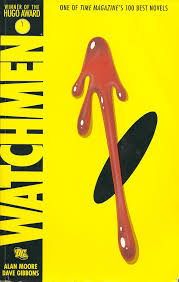
What happens to superheroes plagued by human failings? As they struggled with personal and moral challenges, they fall from grace. Watchmen chronicles the concept of a superhero which changed the United States’ history so the US won the Vietnam War and Watergate never happened. All while the superheroes are stalked by an unknown assassin.
5. Cinder by Marissa Meyer
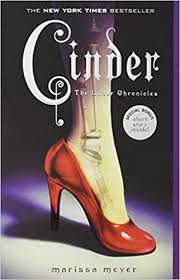
Cinder is a 16-year-old technological mistake, but being a cyborg has benefits. Her brain interference lets her fix things like robots, hovers, and her own malfunctioning parts. As she’s the best mechanic in New Beijing, Prince Kai seeks her on a matter of national security. But family conflicts arise, and Cinder’s step-mom volunteers her for research, from which she won’t survive. Scientists discover something unusual—that others would kill for.
That’s our list. With so many good books out there, tell us in the comments below what we’ve missed.
Love reading? Check out these other book lists?
- The Best Mystery Novels of All Time
- The Best Sci-Fi Novels of All Time
- The Best Horror Novels of All Time
- The Best Historical Fiction Novels of All Time
